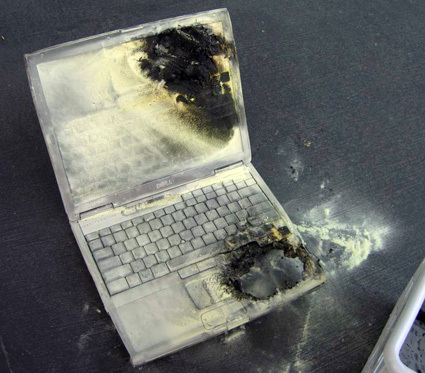PC Reliability: Apple Falls; Asus & Lenovo Gain
Along with the automobile, the PC is something from which its owners demand reliability.
Based on data from computer repair and support company Rescuecom, there’s been a slight shuffle at which company produces the least troublesome computers.
At the end of 2008, Apple had secured the lead with the fewest number of service calls, but has since been overtaken by Asus and IBM/Lenovo (both companies were listed together, perhaps due overlap from older ThinkPads).
Asus and IBM/Lenovo shared the top spot, with the rest in ranked order being Apple, Toshiba, Acer and HP/Compaq.
Rescuecom calculated PC reliability scores based on a sample of over 15,000 servce calls throughout the quarter.
| Manufacturer | U.S. Computer Market Share (percentage of computers shipped) | RESCUECOM Repair Shares (number of service calls to 1-800-RESCUE-PC) | Reliability score |
|---|---|---|---|
| Asus | 1.6% | 0.2% | 927 |
| Lenovo | 4.1% | 1.2% | 348 |
| Apple | 6.8% | 2.1% | 324 |
| Toshiba | 5.8% | 3.4% | 172 |
| Acer | 12% | 8% | 151 |
| HP/Compaq | 25.3% | 17.9% | 14 |
Rescuecom does note in its data that Asus started shipping a new version of its Eee netbook in September 2008, making its shipping numbers skyrocket in the last few months of the year, yet the repair company received a disproportionately small number of calls to its support line for help with this product.
"The results are in, and although Asus is the leader this quarter with a reliability score of 972, Asus's reliability score should be taken with a grain of salt, even though it was more than 600 points ahead of IBM/Lenovo. We look forward to seeing if Asus is able to maintain the same demand and reliability over the coming quarters," says David A. Milman, Rescuecom's founder and CEO.
Get Tom's Hardware's best news and in-depth reviews, straight to your inbox.
Rescuecom's next report, which may reveal evidence of whether or not Asus sustains its reliability momentum, is due out next quarter.
-
I think this is somewhat biased pro-apple. People who buy an Apple product won't call to 1-800-RESCUE-PC as they have a "MAC" and not a "PC". That doesn't mean that their computer didn't break.Reply
-
hellwig Are these hardware issues only? I think it would be amazing if Asus and Lenovo got those numbers with service calls for Windows issues.Reply
Also, how do these numbers work out? There must be some kind of crazy adjustable scale here, obviously some manufacturer generates a higher percentage of calls than they own market share. Where is Dell on this list, or RESCUECOM doens't handle them (but they handle HP?) -
curnel_D phargeWondering what is the score for Dell?..Dell's service is run completely through dell itself. They dont outsource. So they have no reason to release these numbers to an outside company.Reply -
SneakySnake Asus and Lenovo also had the smallest market share - wonder if that had something to do with he resultsReply -
MrManO1 more important than market share, what is the average age of these computers? If the average HP is 5 times older than Asus then that throws off the numbers a bit. Most Asus PCs out there should be under a Manufacturer's Warranty considering they haven't been out that long, so those people wouldn't call RescueCom. Also what is the proportion of laptops to desktops (and netbooks)? I would buy a Gateway desktop (not on the list) but never one of their laptops. In fact I wouldn't be afraid to buy any brand of desktop except Dell.Reply
Good idea for an article, bad implementation.

